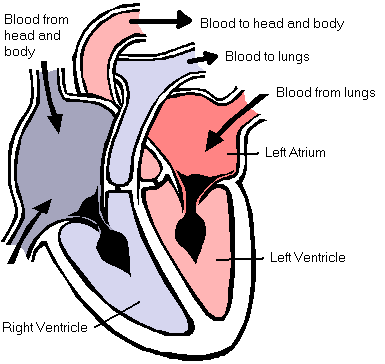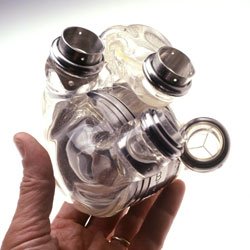|
Louisville Jewish Hospital and the University of Louisville announced today...the world's first implantation of ABIOMED, INC's AbioCor Implantable Replacement Heart, on Monday, July 2. ...The patient is resting comfortably. The AbioCorô Implantable Replacement Heart is intended as a substitute for severely diseased human hearts in patients suffering from coronary heart disease.When these patients are at risk of death, the AbioCor is designed to both extend life and provide a reasonable quality of life. After implantation, the device does not require any tubes or wires to pass through the skin. Power to drive the prosthetic heart is transmitted across the intact skin. |
Click here for Interactive Diagram of the AbioCor Replacement Heart (New Window) |
How does the heart work?
The four chambers of the heart are each made of cardiac muscle which contracts automatically, powerfully and without tiring as fast as 3 times per second for up to 100 years. The energy for a natural heart comes from respiration. The release of energy from glucose using oxygen, to make carbon dioxide and water. The glucose and the oxygen are carried to the heart in the blood, through the coronary artery (see photo below).
 |
|
Natural
heart. A coronary artery and vein are clearly visible.
|




